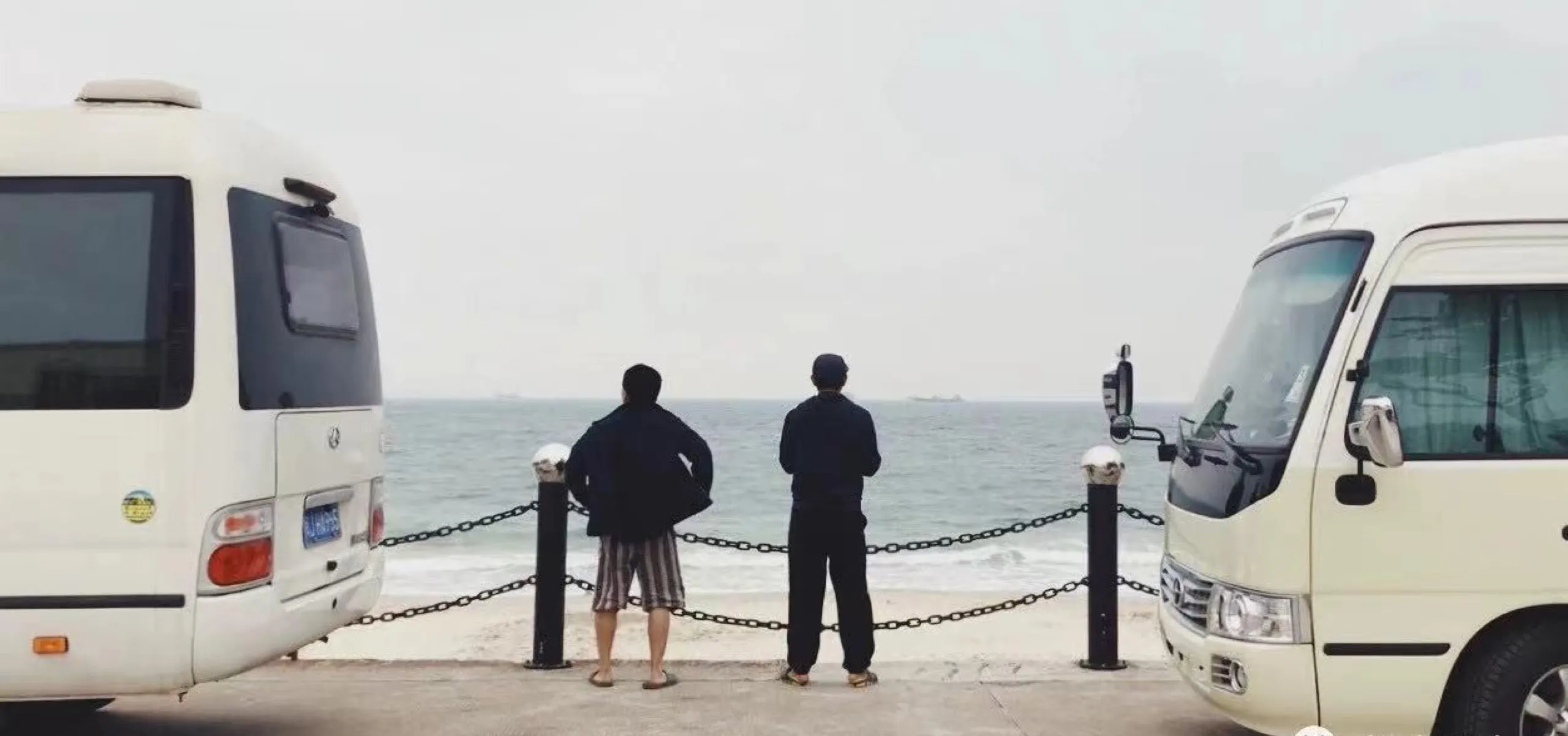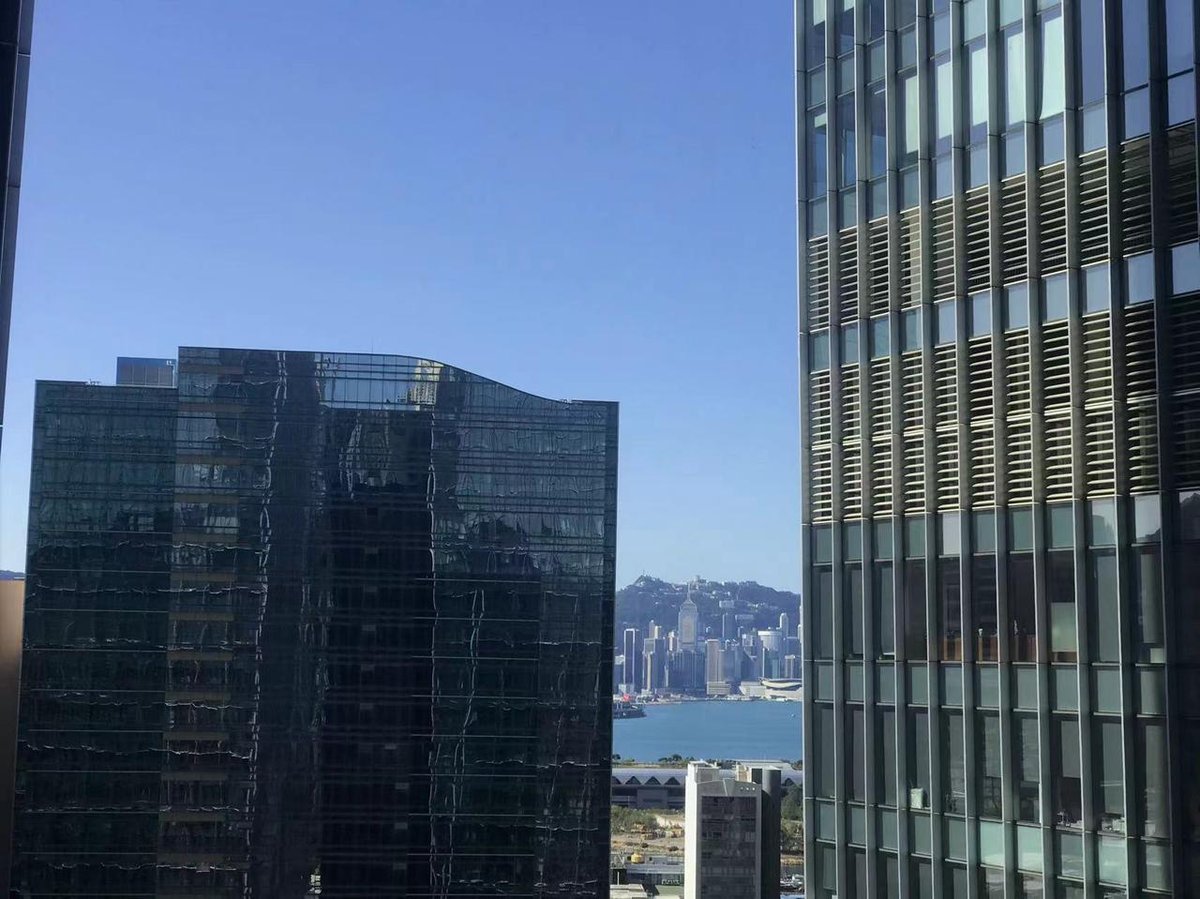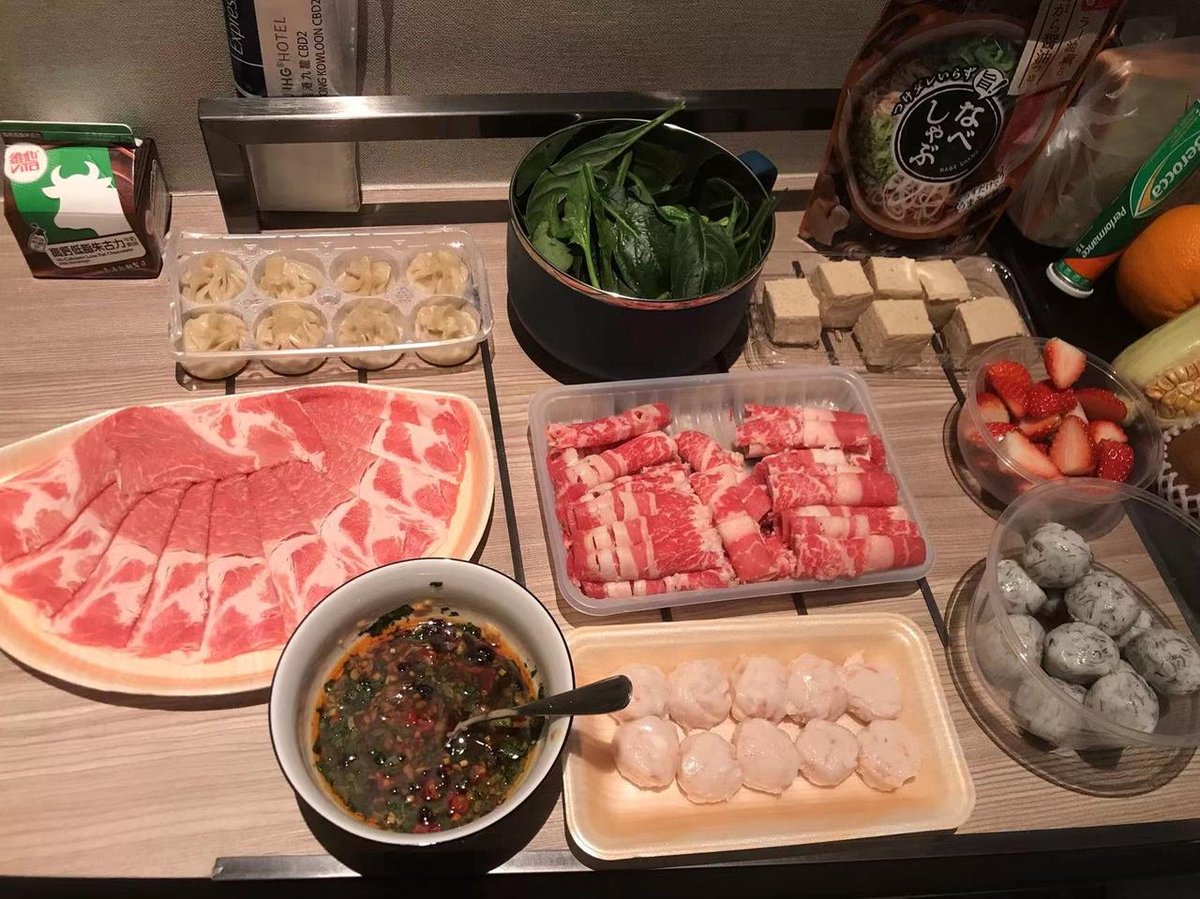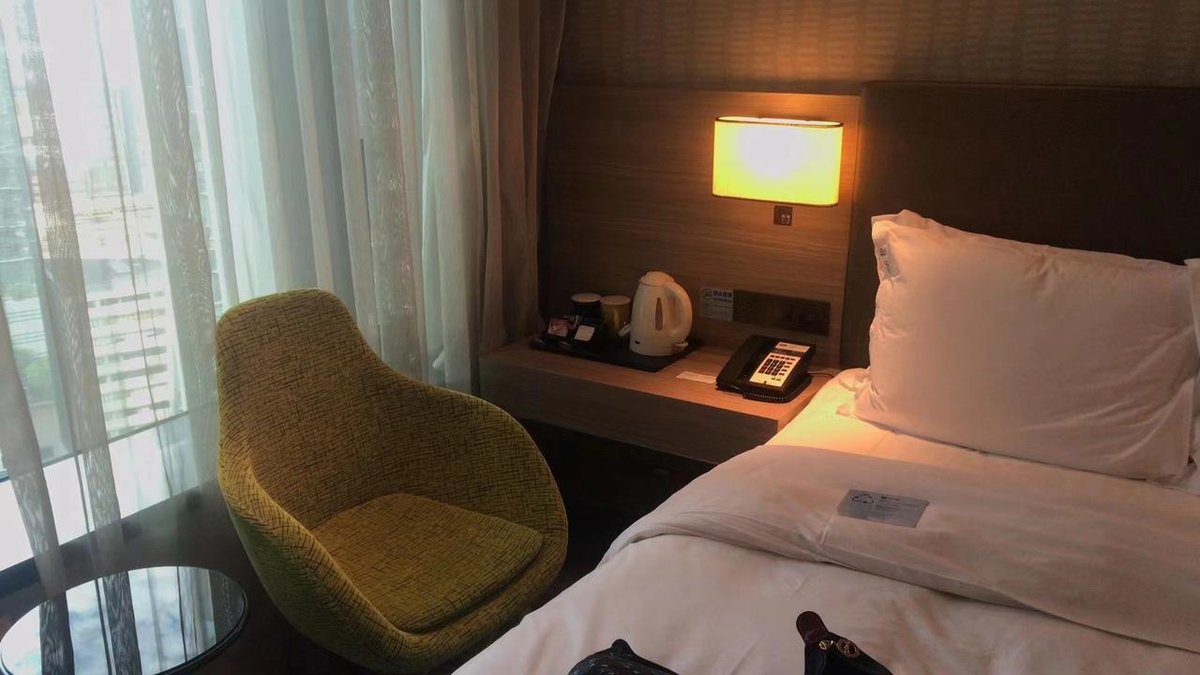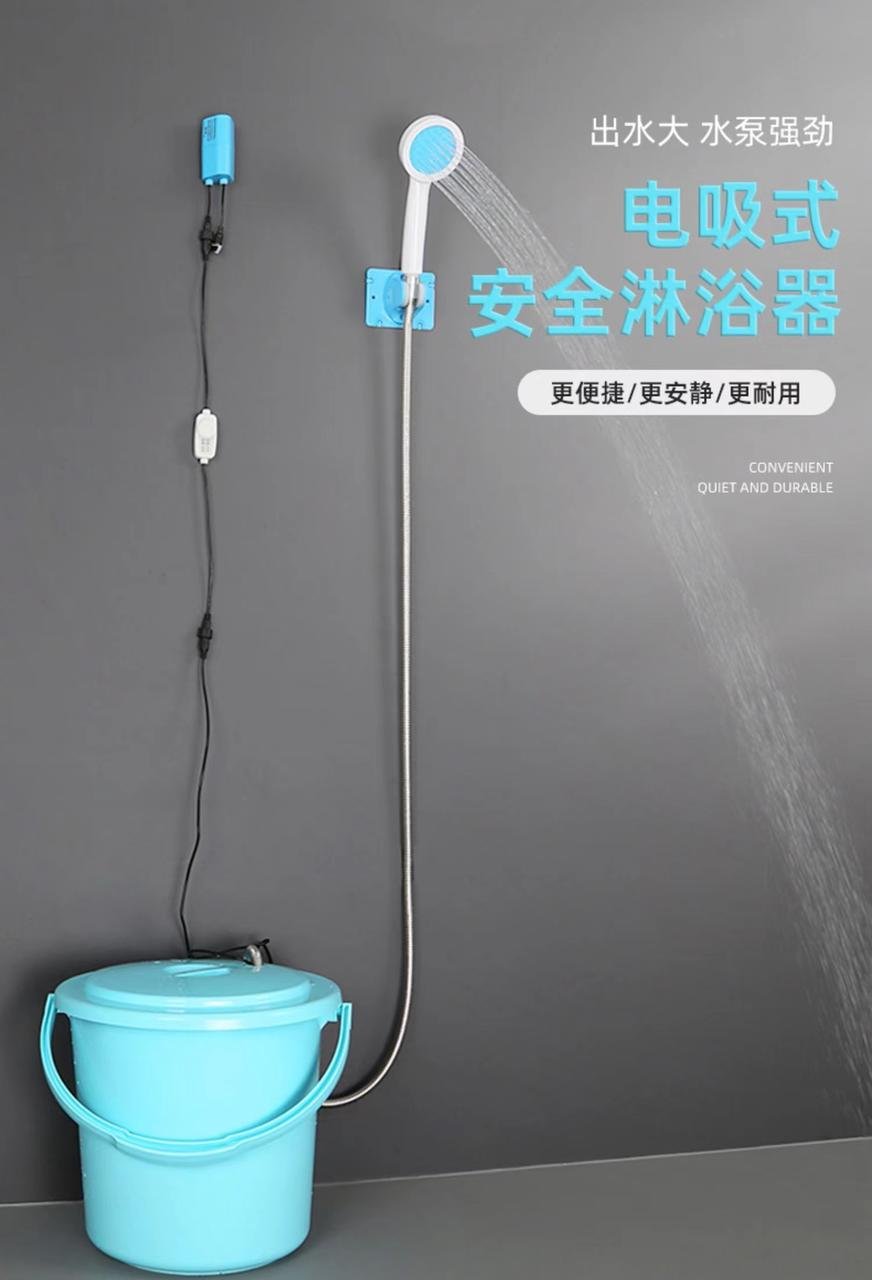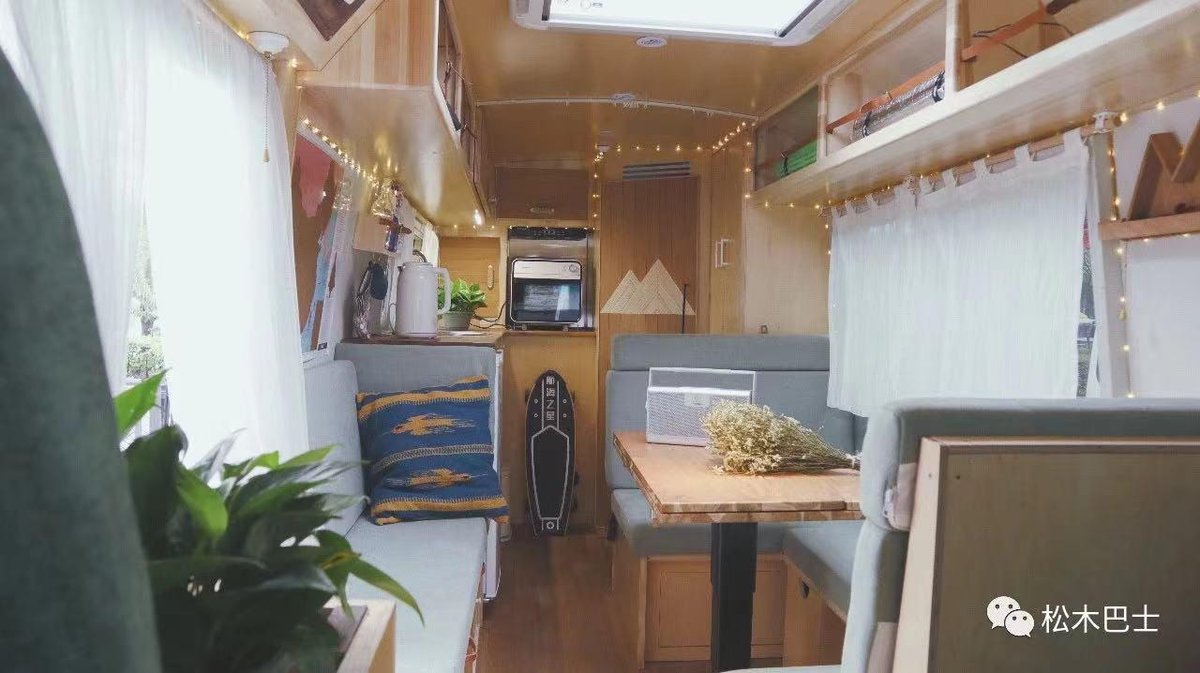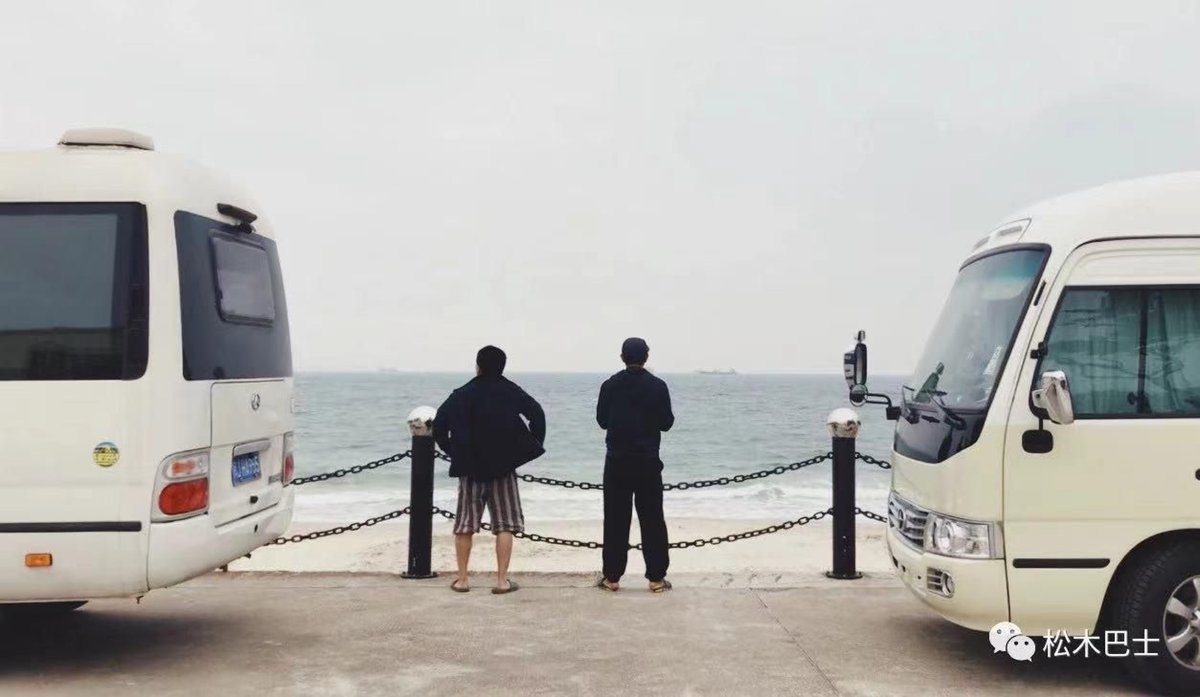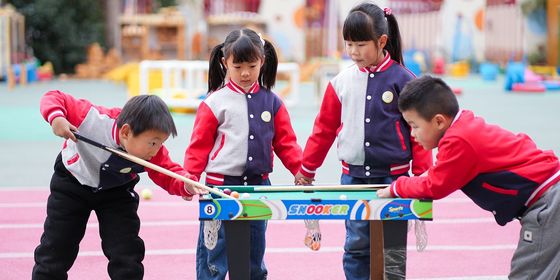From living in hotels to sleeping in the office, three young Chinese tell their stories of avoiding sky-high rents
Many young people in China today leave their hometowns to seek opportunities in another city. For most of these “urban drifters,” finding a place to rent is an inescapable part of the process.
But our three narrators today went against the grain. Whether it’s due to budget or a desire to seek freedom, all of them spent periods in their lives seeking alternatives to renting an apartment. One moved into a hotel, the second lived at his own office building, and yet the third bought an RV. What’s behind their unusual choices? What was life like for them in these unorthodox places? Did they ever truly feel at home there?
-1-
Home in a Hotel
My name is Michelle and I am 26 years old. I completed my education in Australia and returned to China after graduation.
Initially, I found a job in Hong Kong with the intention of studying for the bar exam in my free time. To save money, I rented a room in a shared apartment with strangers. However, I couldn’t get used to this arrangement, so eventually I decided to find an affordable place close to my company where I could live on my own.
Renting is outrageously expensive in a place like Hong Kong. I was looking at a places that rented out for 17,000 HK dollars a month—just 1,000 dollars short of my entire monthly salary back then. I had to sit down to do the math and realized I could afford 15,000 HK dollars, tops. Some more research showed me that hotel rooms in my desired area ranged from 11,000 to 15,000 dollars per month. That’s it, I thought. I’ll just set up “home” at a hotel.
I ended up moving into a three-star hotel located on a relatively quiet street, about a 15-minute walk from my office. I had the shortest commute out of all of my colleagues. The hotel wasn’t bad, so I hoped I would be able to settle down there.
My first room was 19 square meters and came with really good sound insulation, so I could get a good night’s sleep. Mondays and Thursdays were cleaning days at the hotel, so at those points in the week I could always look forward to a neat little pile of fresh bed sheets, clean towels, and a couple of bottles of water by the time I got back from work. Those little details made me feel really comfortable. I was working nearly daily until 8 or even 9 o’clock in the evening, so I really didn’t want to come home to a mess. Plus, my room had a relatively high ceiling and a large, bright window that I loved. Looking out from the window, I would catch glimpses of the sea in between Hong Kong’s dense forest of office buildings. I felt content.
“Why are your clothes always rumpled?”
My hotel life was rosy for a while. Weekly room cleaning, express delivery, room maintenance, and all sorts of daily chores—all of these services were out of my hands.
But soon enough I got to see the shortcomings, starting from that large window that I loved so much. As a rule of thumb, you can’t open hotel windows in Hong Kong, and there’s only so much the air conditioner can do ventilation-wise. After a while, I noticed a significant drop in the air quality, as well as some less than pleasant odors. One day, I was hit by this really strong waft of smoke seemingly out of nowhere.
The hotel’s strategy for any problem that couldn’t be solved immediately was offering the guest a change of rooms, and that’s exactly how they went about the smoke issue. It was a first, but it wouldn’t be the last time. Back then, Sundays were my only days off work, and it was right on a Sunday that I got a sudden notice to change rooms immediately due to water leaking from upstairs. Instead of resting on my day off, I had to drag my tired self all around the hotel for the next seven hours, packing all my stuff that I then schlepped to my new room. By the time I was finally done, it was already dark outside.
At that moment, I suddenly felt deeply unsettled. It’s true that, even if I’d been renting a room or an apartment, I wouldn’t have owned the place. But, at least I’d have had a little more stability, instead of this constant moving around.
Laundry also proved to be an issue. The hotel’s launderette was so crowded that we all had to queue with our laundry bags. Even once it was your turn, it was still half an hour to wash your clothes and an additional 40 minutes for the tumble dryer. To top it off, the clothes came out all wrinkled from the tumble dryer, and that’s how they stayed, because I had no iron in my room. My colleagues would ask me, “Why are your clothes always so rumpled?”
Not gonna lie, I felt like a lowlife. I’d have loved to buy some kind of garment steamer or iron, if only I’d had the space for any of that. I couldn’t even have ironed my clothes comfortably. My room only had three shallow drawers by means of storage. Whenever I wanted to buy anything, I had to first ask myself, “Now where would I put this?” For example, I’m a big soy milk drinker, but it’s really difficult to find that kind you get on the mainland in Hong Kong, so I’d have loved to get one of those soy milk machines. But I had to give up the idea because it’d have taken up too much space.
I was living alone in this unfamiliar city, in this place devoid of any individuality. In these circumstances, having a feeling of “home” was nothing short of a luxury—but even this I was willing to put up with. After all, the sense of belonging isn’t going to come easy when you’re away from home.
However, some other problems were increasingly hard to ignore. Things like a homemade hot meal were out of reach, the longer I lived in a hotel.
A hot pot feast on the toilet
I didn’t intend to cook for myself. I was eating out all the time in Hong Kong, but eating takeaway for too long made my skin break out in acne. According to traditional Chinese medicine, my body didn’t adjust well to this excessive oil and salt intake. It was clear to me that I needed to start cooking, but then again, how?
There were two limitations to cooking in a hotel. Firstly, counter space is limited. Then also, there’s the chance that the smoke alarms will go off. I investigated this and found out that cooking in the bathroom was the way to go—no alarm issues, plus it was the only place with water in my hotel room. On the Lunar New Year’s Eve, when the epidemic in Hong Kong was at its absolute worst, I decided I’d treat myself to a small hot pot feast in the bathroom. With this goal in mind, I dragged the electric boiler into the bathroom and eventually connected it to the outlet with the help of two extension cords.
By now, the bathroom was way too cramped for my collection of ingredients to fit in there, so I could only place them on the toilet lid. Beef meatballs, shrimp paste, the whole shebang. Just imagine! The holiday meal I was about to chomp on was standing on the toilet, with only the lid separating it from its final, crappy destination after it had toured my intestines. To top it off, the hotel trash cans didn’t have lids, so I wanted to retch every time I accidentally glanced inside. But, I was a girl on a mission to enjoy herself some New Year’s Eve hot pot, and so I endured the nausea and boiled the darn water on top of the toilet. Once it boiled, I moved the pot outside, except that I was still scared that the smoke alarm would go off. So every 20 minutes, I returned to the bathroom with my precious cargo.
I will say that I did feel a sense of accomplishment and satisfaction seeing my little hot pot setup. However, at the same time I also felt this hint of sadness in my heart. Hong Kong is a blast to visit for Chinese New Year, but there I was, all alone in my hotel room, pulling out all sorts of tricks to eat a small hot pot meal. I felt like I’d unlocked a new level of loneliness. All these hurdles were only making me more homesick.
This is not “home”
Half a year into my hotel life, I felt like I’d finally just about had enough.
One morning before going to the office, I wanted to have some cereal with warm milk. Now, such a simple breakfast would have taken like 30 seconds in the microwave. But, here I had to use a small pot to boil the milk in the bathroom. In the morning, every minute counts, so I was rushing in and out of the toilet until I managed to trip over the wires of the extension board. My breakfast was not the only casualty—I splashed milk all over the bathroom and my entire outfit, down to my shoes and socks.
That about did me in. I made up my mind to move out of the hotel and spent two weeks looking for an apartment. My pickings were slim, what with my limited budget and the commute. In the end, my colleagues helped me find a relatively suitable apartment in an older complex.
It was such a noisy place, and I noticed right away on my first day there when I got the keys. Outside, the trucks drove by so loudly that the glass in my windows vibrated. I couldn’t sleep a wink on my first night, and I didn’t wake up to anything pretty either. That place was just riddled with issues, such as the leaky toilet. I had no idea whether I should move. I only knew that I wouldn’t get a refund for my deposit—worth 40,000 HK dollars—if I moved out.
Money is the true deal-breaker
A day was all it took for me to decide to cut my losses and move back into the hotel. My cooking woes were nothing faced with potential insomnia, and I also found myself finally acknowledging that there was only so much I could achieve in my current stage of life. I had to compromise on my standards if I wanted to succeed, and maybe the hotel really was my best bet at the moment. My new room did look heaps better in comparison to what I’d just left, and I slept like a baby that night.
All in all, I spent nine months at the hotel until it was time for me to return to the mainland before sitting for my bar exam. It wasn’t like hotel living didn’t have plenty of advantages. If anything, it was flexible, and anyway I think you need to give things a go if you want to find out whether they’re a good fit.
Also, I have to admit that I may have been a bit of an idealist before. It was so important for me to love my job back then, even if it didn’t pay that much. However, my time in that hotel taught me that money is the true deal-breaker. Sure, it may not buy you happiness, but it can solve many problems in life and actually make your life easier. My experience would have been so much better had I been able to afford one of those serviced apartments with kitchens or just better conditions overall.
Our immediate hurdles in life tend to be temporary. No matter how old you are, how much money you make or your circumstances in life, you’re bound to struggle one way or another. However, I’d like to think that it does get easier to roll with the punches as you grow older. Come what may, we should always be hopeful for our future.
-2-
Living in the Office
My name is Jack, I am 22 years old. I come from Shanxi province. This experience took place back when I was still a student jumping with excitement at the chance to do an internship in Beijing, in my dream industry and for my dream company.
The only issue was that the rent anywhere close to my workplace was completely out of my budget, what with being a student and all. Though I got a small monthly allowance for my internship, it was nowhere near enough. Renting a more affordable space would have meant hours spent on commuting every day, and really, I was hoping to use that precious time to hone my skills.
Luckily for me, I was really young and full of enthusiasm back then. I was willing to suffer, as long as I got to enjoy this one-in-a-lifetime chance. That was when I came up with a seemingly perfect solution—I would just live at the office!
Now, this company was in a relatively remote location, and it wasn’t even really a typical office building. The office area itself was really large, spanning some three or four hundred square meters. In addition to the desks, there was a relatively long sofa and a cot for me where I could sleep. The cot was about 0.6 meters wide and 2 meters long. It’s where I chose to sleep on the first day. Problem was, I’m about 1.8 m tall, and I kept falling to the floor as soon as I rolled over. Blankets were not a problem in the summer; just some thin sheets did the trick. Being a guy and everything, I thought it wasn’t all that inconvenient.
At 10 p.m. sharp, all the lights in the office building turned off. The restrooms were some distance away from the office area, and at first I was a little afraid of going there at night. The entire corridor was dark, illuminated only with only the little green light of the emergency exit sign. I needed to use a flashlight, push a heavy fire door open, and walk a while to finally get to the bathrooms. I kept imagining there was someone behind me—my scalp prickled with fear and I kept looking back subconsciously.
Still, terrors aside, the company facilities had their perks for a long-time resident like me. Food was one of them. The office was equipped with a microwave, a refrigerator, and a coffee machine. I also bought a small electric cooker to heat up some frozen ready-made meals. With my simple cooking and a street full of affordable restaurants not too far from the company, I was good to go.
“They called me Cinderella”
However, the longer I lived in the office, the more I had to deal with stuff that wouldn’t have been an issue had I rented an apartment. Like most office buildings, mine had strict opening and closing hours.
One Friday night, I went out to grab a bite with my colleagues, only to bump into the security guard once I got back to the office building. Access denied. I begged and pleaded with him to let me in, but the guy just wasn’t going to have it, and eventually I had to leave. That night, walking down a street so empty there weren’t even any cars around, I did feel the sting of having nowhere to truly call home. Sure, dawn was near and yeah, I had a place to sleep on most nights. But weekends were an issue. For the first time, I got this indescribably dreary feeling about Beijing.
Luckily for me, a friend finally took me in that night. However, there was no such thing as weekend leisure when you were living in an office. Factoring in an hour-and-a-half’s commute, I would have to start heading back to the office at 8 in the evening to make it before closing hour; chances were, I couldn’t even join my friends for dinner downtown. Even when grabbing a quick bite somewhere nearby with my colleagues, I could always count on the alarm I set on my mobile phone to interrupt everyone’s conversation and mark the end of the evening for me. My colleague started calling me Cinderella.
An involuntary workaholic
For sure, living in the company did allow me to get along better with my colleagues, if only because it gave me more chances to communicate with them. In that sense, the situation really helped me get ahead during my internship.
However, this also became an invisible cage for me. I lost any space to call my own. I didn’t really have any spare time, either. One night, I went to bed some time past 11 and left a colleague in the office working overtime on some urgent task. Just as I was starting to drift off, I was woken by knocking on my door. It was my colleague, asking for help with some software she was using to complete her work. She was really apologetic about it, but I am good with computers and there was nobody else around to ask, so what could I do? I got up and helped her.
In that chapter of my life, work was the first and last thing to cross my mind on any given day. It was just impossible to maintain a healthy work-life balance when you lived in your office. Now, don’t get me wrong, I did love my job, but the situation was draining me. Being constantly in the office also meant always being surrounded by people who are working. As a result, I turned into an involuntary workaholic.
Wilderness Survival: Office Edition
Even routine tasks like showering became this huge challenge for me.
The office restrooms didn’t have hot water, and there weren’t any affordable public bathhouses nearby. I tried my luck on Taobao with the key words “portable shower supplies” and found this device that you manually pressed to draw water from a bucket that would come out of a showerhead. I took this setup into a cubicle in the office restrooms.
I needed to set aside at least 40 minutes every time I wanted a shower. It isn’t because I showered for that long: rather I needed to do a ton of prep work. Didn’t I say that the restrooms were far from the office area? Well, I had to carry the entire shower setup plus a power strip, a change of clothes, an electric kettle, and a whole other bunch of stuff to the toilet in two or three trips. It was a pain in the ass.
Then also, any time my colleagues were working overtime, they got to see me walking around in slippers, toting all my crap back and forth. It was wild for them that I’d managed to find a way to shower in a place like that, and I guess they took pity on me, too, because one time this coworker transferred 2,000 yuan to me. He said I could use the money to rent a room. I was really moved by his kindness, but I turned it down because I really couldn’t see a way to make it sustainable.
I made it work all summer. In the winter, though, well that was a different kettle of fish. I was freezing my ass off there in the bathroom, so I bought this small tent meant for outdoor camping to warm up in the bathroom cubicle while I showered. I gave myself a pat on the head for my resourcefulness, but the truth is that showering was now an even bigger pain in the ass. The office area was not very well insulated, so it was an oven in the summer and a freezer in the winter. I got sick quite often.
So, it’s no wonder that I wasn’t in a good mood most days, and I even lost my appetite. In the evening, my whole shower ritual felt dreadful. I no longer felt I was able to deal with all these hardships, and I’d ask myself, Why am I doing this?
At least a good night’s sleep always helped with the fatigue, if only to get me through the first hours of the morning. I thought that I still had it in me to persevere—after all, it was all for the sake of my career in a job I enjoyed.
Still, toward the end of my internship I found a new job. After leaving the company, my former colleagues gave me this farewell gift that made me crack up. You know that British adventurer named Bear Grylls who got really famous for his stories of survival in the wilderness? Well, my colleagues all got me this banner that read: “Attaboy, Bear.”
I feel a little embarrassed in hindsight. These days, I can afford to rent my own place, and I don’t think I could bear living in my workplace ever again. However, I still think it was a pretty valuable experience. Yeah, it was hard, but I learned a lot of lessons, and gained an experience that not just anyone can claim to have gone through.
-3-
Cruising China in a Caravan
My name’s Luo Qi. I am nearly 40 years old and I come from Hunan province. I came to Dali in Yunnan some time ago, and rented a house here while doing freelance work.
In 2017, I considered buying a place and settling down here, but things didn’t work out that way for me. Real estate prices are crazy in Dali these days. Any property that I’d have been interested in would have sucked me dry of my entire savings of about 2 million yuan.
This housing market frenzy got me really anxious, and I felt terrible when I realized that I couldn’t ever afford to buy a house. For the next six months, I got deep into the stock market, driven by this borderline-obsessive goal to make big bucks fast. I basically became this hermit that relied on takeaway for meals, spending most of my day glued to my computer for the latest updates on the prices. To tell you the truth, I had a few chances to just settle and buy an OK place during that period. But I guess us humans are greedy by nature, because by that point all my energy was spent on the stock market. It’s not like I was having any fun—quite the contrary, it was pretty unnerving. Never in my entire life had I felt so chained to anything.
After a while, I realized I’d fallen in a rut I needed to snap out of, pronto. That was right about the time a huge meteor hit Yunnan. My friend and I went on a whim to check the exact spot where it had hit ground, and we made a trip out of it, all the way west to Shangri-La in his remodeled RV. The landscape—a skyline of snowcapped mountains under the moonlight—amazed us, and the trip did me a lot of good. I thought, what if I lived in a caravan myself? The whole idea fed into my dreams of freedom and romanticism. So, I eventually decided to buy my own refurbished vehicle.
The RV I ended up getting for nearly 400,000 yuan was a remodeled minibus. The designer had paneled most of the interior in solid wood for a cozier look. The living space could seat up to eight or even nine people. The table in the middle was foldable and doubled as a bed. A washing machine was nestled under a series of hanging cabinets and storage units. I could shower in a tiny bathroom—only about one square meter—at the rear of the vehicle.
When I picked up the RV, I felt that I finally had a place to call my own. This was my home now, and as long as I didn’t sell it, no one could take it away from me. I was free to go wherever I wanted. The world was my oyster now.
The first time I hit the road in my brand new RV, I felt like the coolest, luckiest guy on earth. I also felt at peace. Once I got off the highway, I found myself a spot in a suburban wilderness park. It was a remote location near a body of water, surrounded by tons of weeds and densely populated by mosquitoes that paid me a visit that very night. I killed them by the dozen, with my hands full of blood from each deathly clap, and I never figured out how to get rid of them. Not even a screen door could contain them, and they weren’t the only intruders—I also saw mice.
Such was the start of my RV trip. However, overall I was still really happy.
A nomadic life
For a while, it really was a cool experience. I got to enjoy the scenery I was passing through anytime I wanted. Feeling tired? I could just drive to the nearest service area for a rest. Admittedly, water, electricity, and daily necessities were pretty limited in the RV, but I still made do.
I didn’t have a plan and I didn’t need one either. All that I knew was that every day, I looked forward to new sights and new scenery at each stop. What moved me the most during those early days in the caravan were some candid scenes of life. That year, when my birthday came around somewhere near Dali, I parked on the side of the road and brought out a small cake I’d bought myself and stuck a candle in it. I turned on some dim lights and listened to my favorite music as I enjoyed the views of Erhai Lake and the nearby village, where some lights still twinkled. I felt completely at ease. What’s more, a photographer friend who just happened to pass by recognized my RV and knocked on the door, so I invited him to come and have some birthday cake with me. Usually, the fees for his services were really high, but since it was my birthday, he took my picture for free. None of this could have happened had I stayed in at home.
Another time, a friend who was in my area came over for a chat and we ended up having quite the unforgettable experience. We drove until we reached the Kashgar River and went rafting there, and since there were no homestays there, we just stayed in my RV. People were painting by the river. I took some time to read and then we had this wonderful hot pot meal together in the caravan.
I enjoyed parking my RV by the sea. I have this memory of seeing thousands of jellyfish in the sea at Aranya in Hebei. Wherever I looked, it was full of these eerie, bubble-like transparent creatures. I felt as though I’d left Planet Earth and was now floating in outer space.
In terms of money, I can’t say the RV helped me cut corners. In fact, I spent a pretty penny on stuff like gas, tolls, and parking fees in big cities. I’d say I spent between 3,000 to 5,000 yuan on average every month on the RV. That’s about the same amount you’d spend on actually renting a house. To be honest, though, I don’t think you can think of it purely in terms of money. Beautiful scenic spots often come without accommodation options. In about a year and a half of RV living, I drove some 25,000 kilometers and visited nearly 30 cities. Needless to say, that itinerary covered first-tier cities such as Beijing, Shanghai, Guangzhou, and Shenzhen, but I also got to visit places such as Qinhuangdao, Urumqi, Tianshan, Dunhuang…
The not-so-bright side of life on wheels
However, with time I came to discover the many inconveniences of living in a caravan. Here’s the most crucial one—there’s always something going wrong with your van.
For instance, the road to Xinjiang is a long, winding trip through the mountains. At some points you need to speed up; at some others, you actually need to go slow. Now, RVs are really heavy vehicles, nearing four tons, and their gearboxes are bound to overheat when faced with routes like the one I just described. Even after draining all the water in the caravan, it still didn’t work. Eventually, I had to give up and go back to Dali, where the RV brakes finally took their last breath—yet another common happening.
After my Xinjiang fiasco, I decided to book it to Hainan again. Hainan gets hot and stuffy in the summer. If you want to live in a caravan while there, you must turn on the air conditioner. The fun part is, I had two air conditioners in my RV—one car AC, and one that was originally intended for indoors usage at home—and both of them managed to break down simultaneously. As if that wasn’t enough, when I resorted to using the external power supply of the household AC, I found out that the whole thing was at risk of electrical leakage. I’d touch the vehicle door and get a jolt. Eventually, I gave up out of sheer fear, except I was still stuck with the original problem—the unbearable humidity and stuffiness inside the vehicle. The RV’s shower setup couldn’t keep up with my need to refresh. Things got so bad that, for the first time ever, I toyed with the idea of giving up on this lifestyle altogether.
A vanishing world
With the outbreak of the Covid-19 pandemic, many people found themselves blocked on the country’s highways. I was in Pinghai Town, Guizhou province at the time, and I decided not to risk it myself.
With my license plate betraying me as a transplant from another province, I wasn’t allowed to park at the one good local parking lot. The compounds where my friends lived had locked their doors, too. My only option left was driving down to the parking lot of a temple at the foot of the mountain, where I felt safer.
On the other hand, one of the benefits of living in an RV during the early period of the epidemic was that I wasn’t subject to community lockdown controls. I became someone devoid of an identity. Without a community or organization to call my own, I felt as though the entire world had forgotten about me.
However, soon enough even this supposed freedom—however ample it was compared to those stuck in their compounds—proved far more limited than I’d initially thought. I spent days on end alone, not seeing anyone other than at the supermarket when I bought my groceries. Even passersby on the street were wearing their masks and there wasn’t any possible way we could communicate. I felt as though the whole world was vanishing into thin air, leaving behind only the temple bells and myself in this empty carcass of what once was.
My caravan was no longer a means to explore new places. I was trapped in my one location, day after day. As a result, I got to witness firsthand our collective, gradual alienation. Close contact between people seemed to be an omen of danger. I lost my former willingness to open up and meet people. Once again, I started questioning the whole caravan lifestyle. I began to reconsider the kind of freedom that I truly wanted for my life. I started to think that maybe it wasn’t about living in a mobile home, after all. Perhaps, the true purpose of a meaningful life is cultivating a desire to open up to our fellow humans.
Thus, I came to realize that I didn’t necessarily need an RV to pursue my freedom, either.
That’s how my caravan days came to a gradual end. Nowadays, I live in a two-bedroom house that I rent from a local here in Dali. I bought an SUV for my travels, and my life has become very settled. Before, I couldn’t have fathomed a life like this, let alone bear it: fixed schedules, set paths. However, these days I’m just happy to spend time on a job I actually enjoy. Nowadays, I think of “freedom” as the privilege of having enough control over my own life, doing stuff that gives me a sense of accomplishment while staying open to the world around me.
Produced by Zhao Zhenyi





